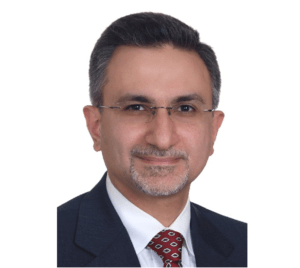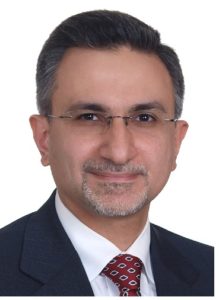29 June 2020 In Blog Post, COVID-19, Dialogue and Networking, Investment, MENA, Sustainable Development
IsDB announces US$2.3 billion strategic preparedness response for member countries
Shared by Mohammed Alsayed, Manager, Public Private Partnership Division, Islamic Development Bank, and published in the IsDB SDG Digest Special Edition on COVID-19
In recent years disruption is associated with something positive. This was largely associated with the work of scholars of innovation such as Clayton M. Christensen. The Cambridge Dictionary defined the word disrupt as “to prevent something, especially a system, process, or event, from continuing as usual or as expected.” An example of this according to the dictionary is to say for instance “heavy snow disrupted travel into the city this morning.” With the experience of Coronavirus, the word is reverting to its initial meaning.
The last two months of the year 2020 has reflected the original meaning of disruption due to the impact of Coronavirus. The global economy is in crisis. Airports and schools have been closed, curfews have been imposed to control the movement of people, key industries and development institutions have asked their staff to work from home. Major economies have announced economic stimulus to inject life to the economy and support small businesses.
King Salman of Saudi Arabia is leading a global effort to unite G20 countries to come up with a strategy to respond to the impact of the pandemic. United States Congress has approved US$2 Trillion stimulus to support its economy. As of the time of writing this piece, Johns Hopkins University’s Resource Centre on Coronavirus has confirmed 1,170,159 cases worldwide. Out of this 63,832 have died while 237,978 people have recovered from the virus.
The Islamic Development Bank (IsDB), a major international Islamic financial institution serving 57 Countries across Asia, Africa, Middle East, Europe and Latin America did not rest.
First, the bank took measures to protect its staff by asking them to work from home. Regular advisory is issued by the Business Continuity Management Committee to make sure staff at the headquarters and the Regional Hubs are fully aware of the guidelines shared by senior government and health officials.
What about the Member Countries who count on the support of institutions like the IsDB? In an opinion piece published by the President of IsDB Dr. Bandar Hajjar, an aid package of US$2.3 Billion was announced by the bank to help tackle this pandemic. Dr. Bandar Hajjar stated that: “The scale of the COVID-19 outbreak demonstrates that we are not prepared for large-scale pandemics. So, where are we today? On average, there are more than 1,000 new cases of COVID-19 every day with rapid exponential growth. The crisis has already shattered capital markets and the picture for economic growth in 2020 looks bleak. COVID-19 disrupted global supply chains and created poor trading conditions. SMEs are hardest hit in certain IsDB Member Countries and will deteriorate further. As a result, the world is set to lose 25 million jobs according to many studies.”
Dr. Hajjar called the package “The 3 Rs”, meaning, Respond, Restore, Restart. He explained the 3 Rs as follows:
- Respond: This track delivers immediate action through South-South and North-South reverse linkage operations focused on a) strengthening health systems to provide care to the infected; b) building capacity in production of testing kits and vaccines; and c) building Pandemic Preparedness capacity, in cooperation with G20 Global Initiative.
- Restore: This track delivers medium term action through financing for trade and SMEs to sustain activity in core strategic value chains, and to ensure continuity of the necessary supplies mainly to the health and food sectors, and for other essential commodities.
- Restart: This track delivers long-term action to build resilient economies on solid foundations and catalyze private investment by supporting economic recovery and countercyclical spending, with a targeted US $10 billion that aims to unlock $1 trillion USD worth of investments.
The President of IsDB then reiterated the commitment of the bank to work with partners such as the United Nations, World Health Organisation, philanthropists and other stakeholders to help Member Countries to build resilience against the pandemic.

Mohammed Alsayed

Mohammed Alsayed
